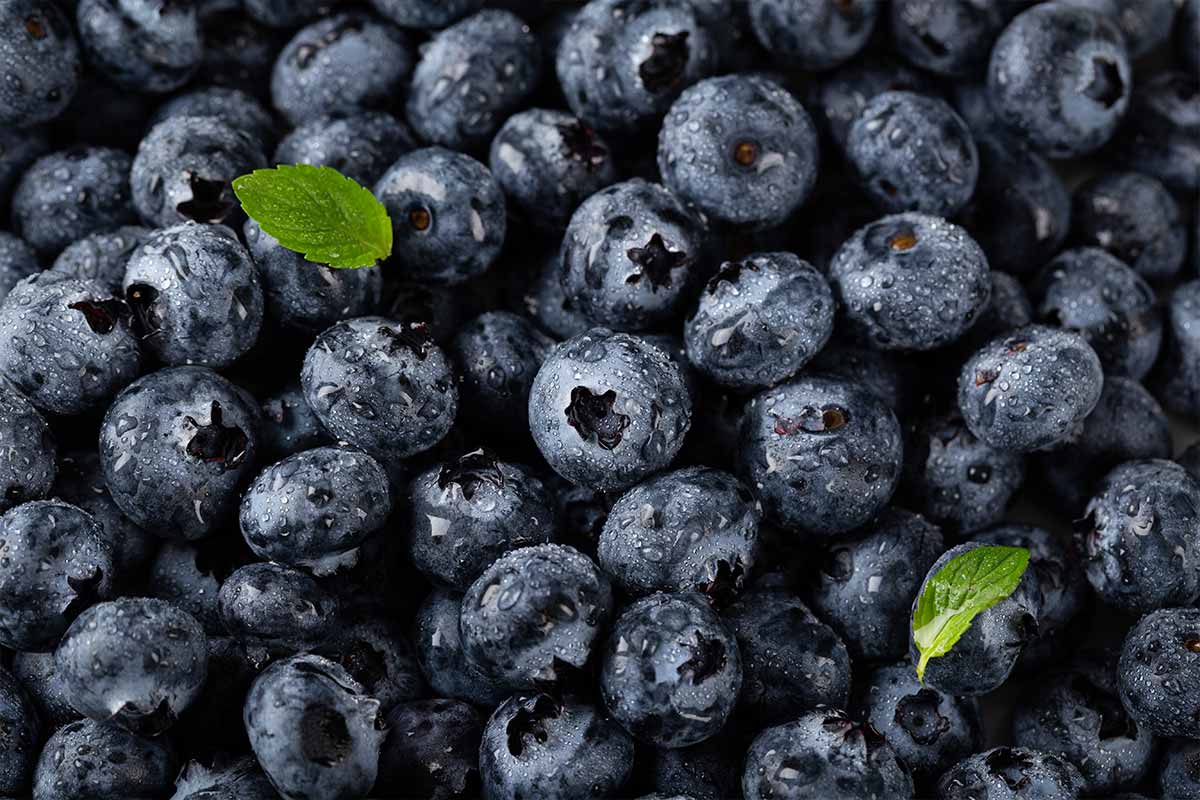A quick rinse under the tap might seem enough, but it often leaves behind dirt, bacteria, and pesticide residues. To truly clean blueberries and keep them fresher for longer, you’ll need more than just water. Everyday pantry staples—like vinegar or baking soda—can change the fruit’s surface pH, helping slow mold growth and eliminate harmful microbes.
With short soaks, thorough rinsing, and complete drying, you can improve food safety, preserve taste, and extend shelf life—without complicated steps or pricey products.
Why Blueberries Need More Than a Quick Rinse
Running blueberries under tap water will wash off visible dust, but plain water is neutral in pH and does little to remove pesticides or kill microbes. That’s why food scientists recommend an acidic or alkaline wash.
-
Acidic solutions (like vinegar) break down certain pesticide residues and create an environment where bacteria can’t thrive.
-
Alkaline solutions (like baking soda) target different microbes, giving you broader protection.
Food scientist Bryan Quoc Le, Ph.D., explains: “Acidity helps dissolve pesticide residues while slowing bacterial growth. Alkalinity disrupts other microbes. Together, these approaches give safer, cleaner fruit.”
The key? Keep soaks short. Too much time in liquid can soften the skin and dilute the berries’ flavor. Gentle agitation, followed by a fresh rinse and careful drying, helps blueberries stay crisp, bright, and tasty.
Acid vs. Alkaline Washes: How They Work
-
Vinegar Wash (Acidic): Distilled white vinegar is the best choice. It’s cheap, widely available, and has a consistent acidity. Its low pH dissolves pesticide residues and hinders bacterial growth. Apple cider vinegar also works but costs more and can leave a stronger smell.
-
Baking Soda Wash (Alkaline): Baking soda (sodium bicarbonate) creates a mild alkaline solution. It neutralizes some contaminants and microbes. To avoid a bitter aftertaste, dissolve it fully in water and rinse blueberries well afterward.
Research shows both vinegar and baking soda baths reduce contamination better than water alone—while staying safe, affordable, and gentle on fruit.
Step-by-Step Cleaning Instructions
Vinegar Bath
-
Mix 1 part white vinegar to 3 parts cold water in a bowl.
-
Add blueberries and soak for 5–10 minutes, stirring gently.
-
Drain in a colander and rinse under cold water to remove vinegar taste.
-
Dry completely with a clean towel or paper towels before storing.
Baking Soda Bath
-
Dissolve 1 teaspoon of baking soda in 2 cups of cold water.
-
Add blueberries and soak for 5–10 minutes, stirring occasionally.
-
Rinse thoroughly under cold water to remove any residue.
-
Pat dry carefully before storage.
Don’t soak longer than 15 minutes. Over-soaking can damage skins, affect flavor, and encourage spoilage.
Drying and Storing Blueberries for Longer Freshness
Moisture is the number one enemy of blueberries. If left damp, they mold quickly—even after proper cleaning. That’s why drying is essential.
-
Pat dry with a clean towel or paper towels.
-
Store in a breathable container lined with paper towels in the refrigerator.
-
Avoid airtight plastic bags, which trap moisture and accelerate mold.
When washed and stored properly, blueberries can last up to a week in the fridge instead of spoiling in just a couple of days.
Freezing Blueberries the Right Way
If you bought a large batch, freezing ensures nothing goes to waste.
-
Wash, rinse, and dry blueberries thoroughly.
-
Spread them in a single layer on a baking sheet.
-
Freeze until solid (2–3 hours).
-
Transfer into freezer-safe bags or containers, removing as much air as possible.
This prevents clumping and preserves color, flavor, and texture. Frozen blueberries are perfect for smoothies, oatmeal, or baking.
Why Not Use Store-Bought Fruit Washes?
Commercial fruit and vegetable washes often claim to be more effective than household methods, but studies show they don’t work better than vinegar or baking soda.
Some industrial-grade washes (like peroxide blends) are highly effective—but they’re not available for home use. For everyday safety and convenience, your pantry staples are the smarter, cheaper, and proven option.
Expert Tips for Everyday Blueberry Care
-
Wash just before eating. Washed berries spoil faster, so clean them right before consumption.
-
For advance prep: Wash, dry completely, and refrigerate promptly.
-
Buy smart: Choose firm, dry berries with a dusty white bloom (that natural coating protects freshness).
-
Mix methods: Use vinegar baths for everyday cleaning and baking soda for extra coverage if you suspect heavier residues.
A Simple Routine That Saves Flavor and Your Food Budget
Blueberries are delicate, but with the right cleaning method, they stay safe, flavorful, and fresh much longer.
-
Soak for 5–10 minutes in vinegar or baking soda solution.
-
Rinse thoroughly with cold water.
-
Dry completely before storing.
-
Use breathable containers in the fridge—or freeze for months of use.
These easy steps keep blueberries delicious while cutting down on food waste and protecting your health.
